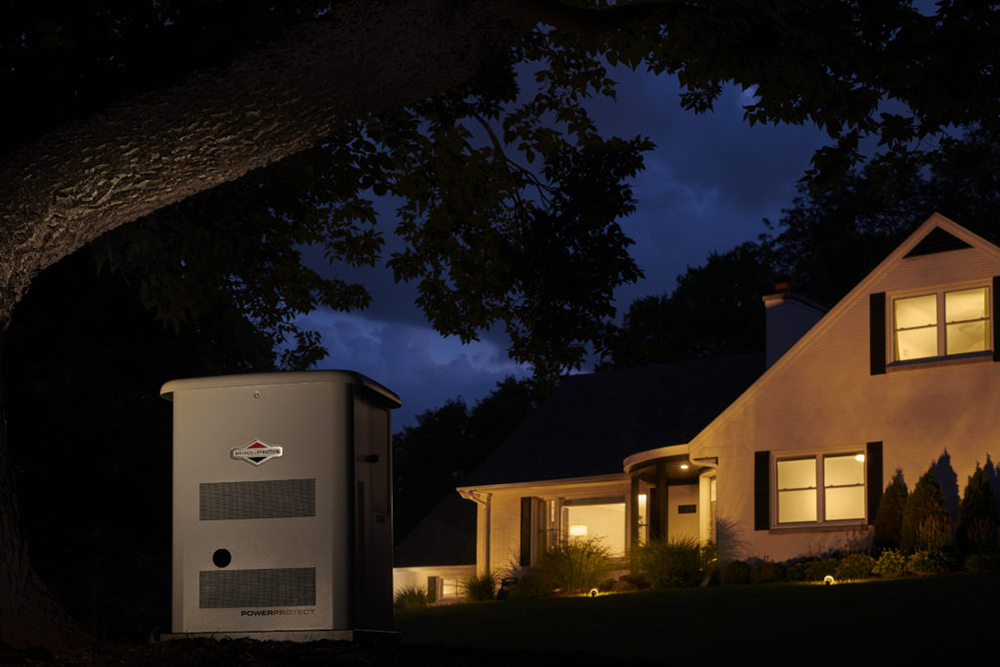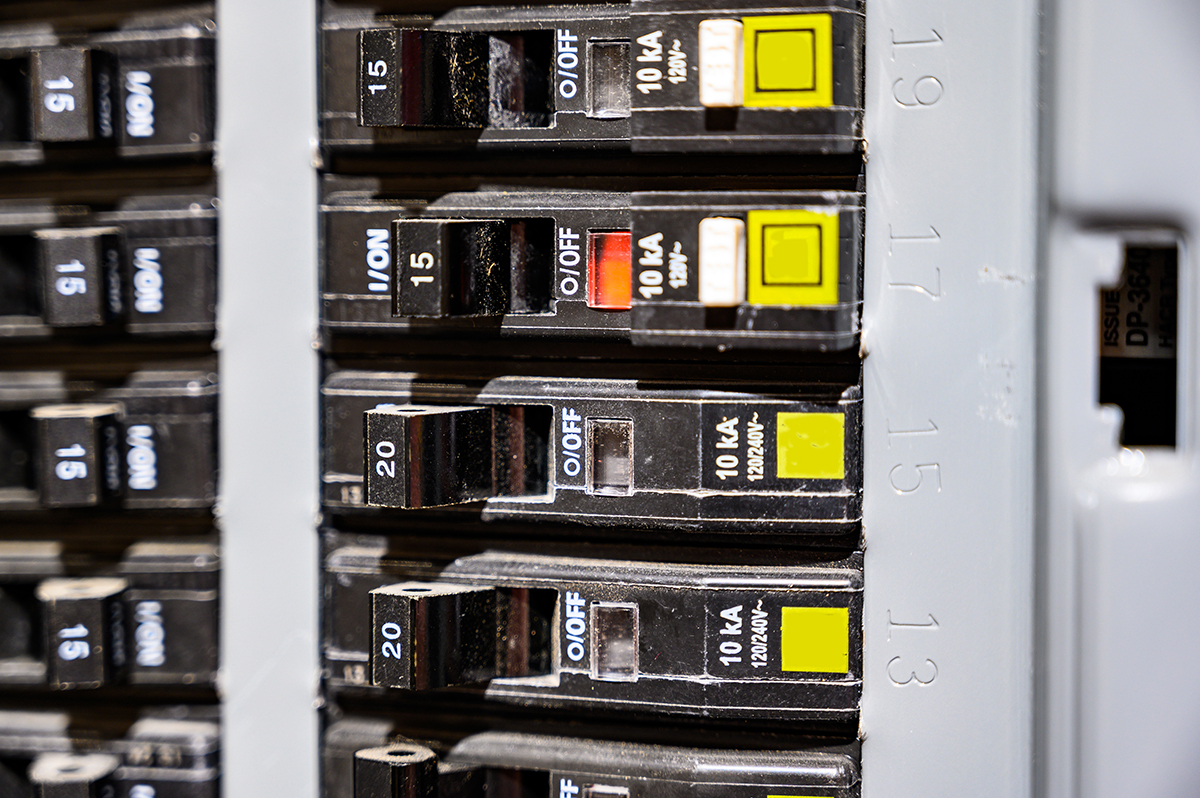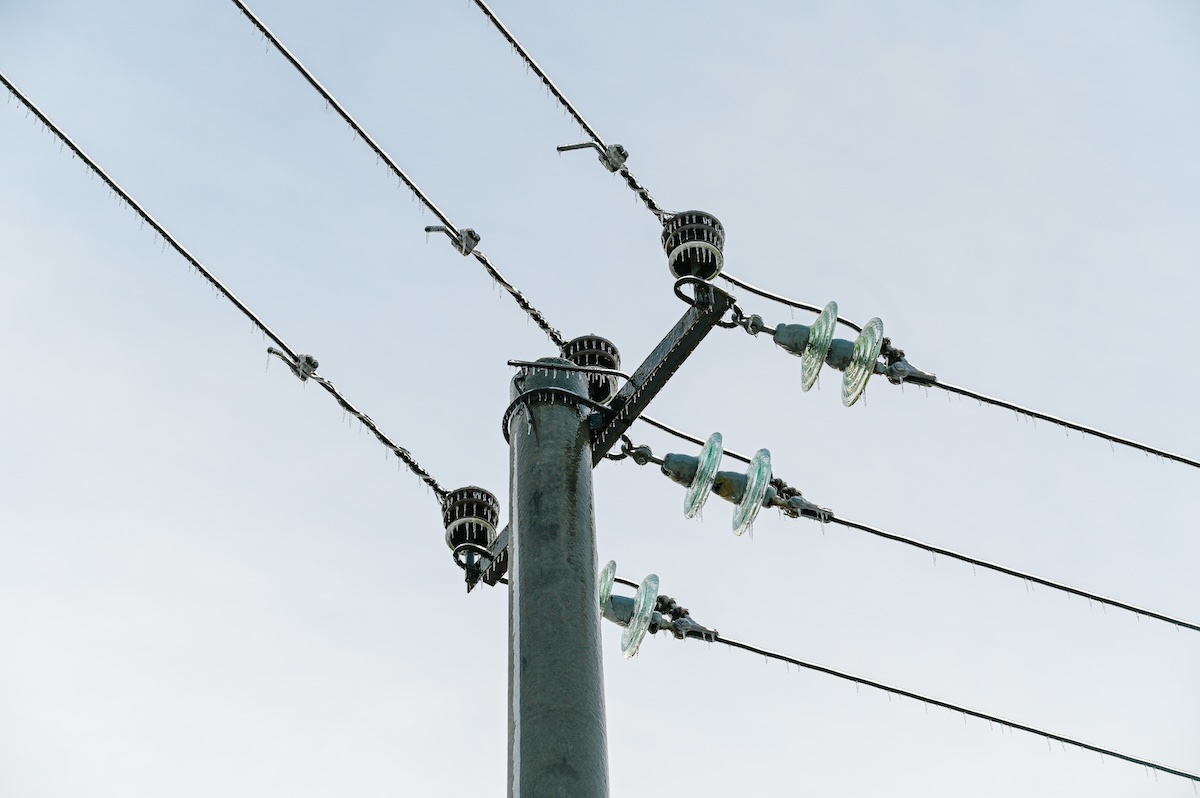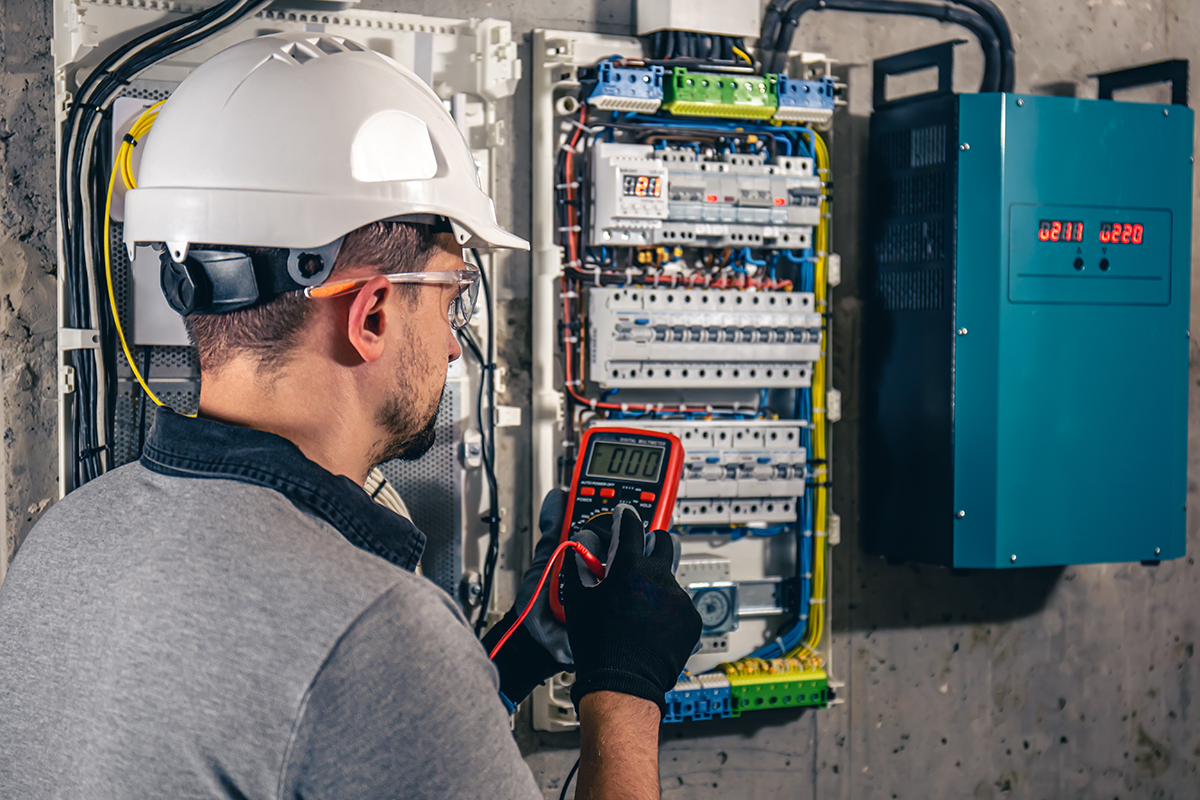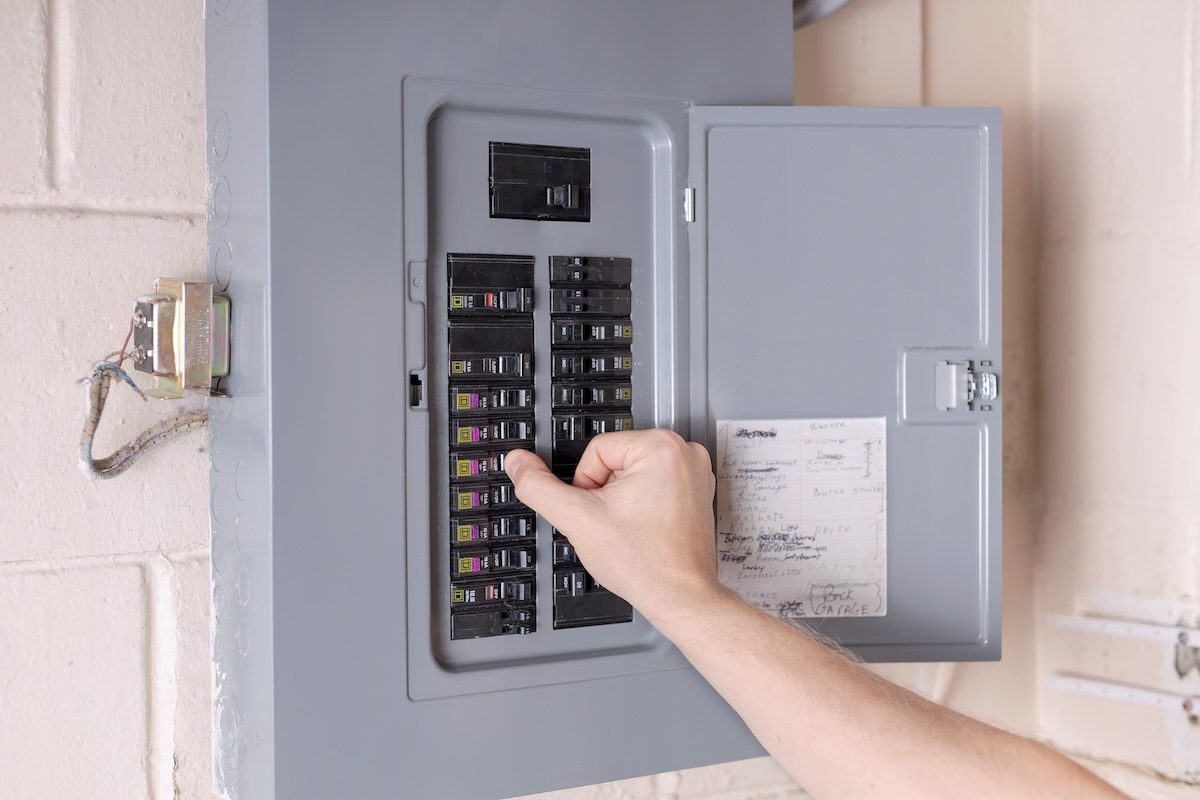In Houston, Texas, where the weather can be as unpredictable as it is extreme, the importance of a reliable power supply cannot be overstated. From the scorching summers to the unexpected freeze events, Houstonians know all too well that power outages can occur at the most inconvenient times, disrupting daily life and posing significant safety risks. This is where the peace of mind with a whole home generator becomes invaluable.
Understanding the importance of standby power, Brotherlylove Electric will explain everything you need to know about whole-home (or standby) generators—from understanding the basic principles and addressing common questions to evaluating your options and making an informed decision. Designed with Houston residents in mind, we aim to help you navigate the complexities of choosing and installing a whole-home generator that perfectly fits your needs.
Whether you’re concerned about keeping your air conditioning running during a summer blackout, ensuring your home’s equipment remains operational, or simply maintaining comfort and security during unforeseen power outages, Briggs & Stratton’s standby generators offer the reliability and efficiency you need to move toward a future free from the inconvenience and anxiety of power disruptions.
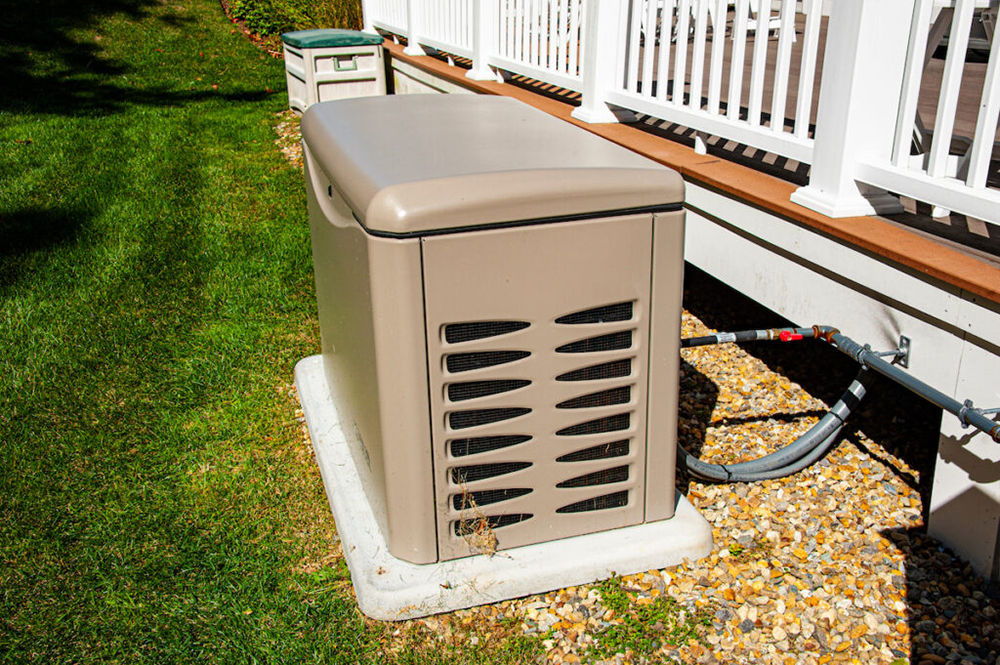
Understanding Whole Home Generators
Electricity is the unseen lifeline that powers everything from our lights and appliances to life-saving. Yet, in a city like Houston, where the weather can swing from sweltering heatwaves to torrential storms, the reliability of this lifeline is frequently tested. Understanding whole home generators becomes essential for those seeking an uninterrupted power supply, ensuring safety, comfort, and normalcy even during the most severe weather events.
Why Consider a Whole Home Generator?
The concept of a whole-home generator extends beyond mere convenience; it’s about safeguarding your home’s functionality and your family’s well-being during power outages. In Houston’s challenging weather conditions, a continuous power supply is not a luxury but a necessity. Standby generator systems for your home stand ready to provide power at a moment’s notice, thereby mitigating the adverse effects of Houston’s unpredictable weather on our daily lives.
From maintaining the operation of HVAC systems during extreme temperatures to ensuring that food preservation and safety systems continue to function in emergencies, whole-home generators offer a seamless transition of power that portable generators cannot match.
Common Questions and Concerns
When considering the addition of a whole home generator to your property, it’s natural to have questions and concerns. Let’s address some of the most common inquiries to help you better understand what a whole home generator is and how it can serve your needs.
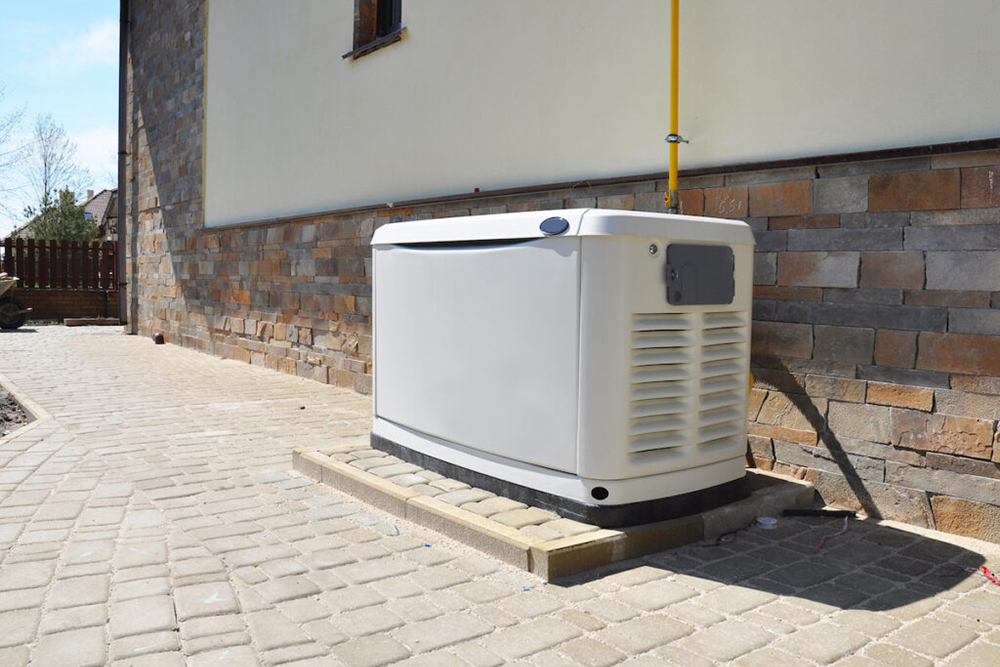
What is a Whole Home Generator?
A whole home generator, a standby or backup generator, is a permanent fixture installed outside your home, similar to an AC unit. Its primary function is automatically providing power to your home during a utility outage. Unlike portable generators, whole-home generators are directly connected to your home’s electrical system and are often fueled by an existing natural gas or propane supply. This setup allows for an automatic and immediate response to power outages, ensuring that critical systems and appliances in your home continue to operate smoothly.
Whole-home generators are designed to handle your home’s total electrical load, meaning they can power everything from HVAC systems and refrigerators to lights and sump pumps simultaneously. They come in various sizes to accommodate different energy needs and can be customized based on your requirements.
Understanding the role and function of a whole-home generator is the first step toward recognizing its value in providing security and comfort to a household, especially in areas like Houston.
How Do Whole Home Generators Work?
Whole-home generators are designed to provide an immediate and automatic response to power outages, ensuring minimal disruption to daily life.
Here’s a breakdown of how these systems typically operate:
- Power Monitoring: The generator continuously monitors the power supply in your home. It is connected to your electrical panel and works in tandem with an automatic transfer switch (ATS).
- Automatic Activation: When the system detects a disruption in the utility power supply, such as during a storm or other outage, the ATS disconnects your house from the grid. This disconnection triggers the generator to start up. This process is automatic and can occur whether or not you are home, providing immediate protection.
- Power Delivery: Once the generator starts, it supplies electricity to your home’s electrical panel. This transition happens within seconds of a power outage. The generator operates like the grid, delivering power to your home’s systems and appliances, allowing for a seamless transition that keeps your home running smoothly.
- Fuel Supply: Whole-home generators typically run on natural gas or propane, which allows them to operate for extended periods. When connected to an existing gas line, they don’t require manual refueling like portable generators, making them more convenient and efficient for long-term use.
- Continuous Operation: The generator will continue to supply power to your home until the utility service is restored. It’s designed to operate for extended periods, ensuring that your home remains comfortable and functional, even during prolonged outages.
- Automatic Shutdown: Once the utility power is back on, the system detects the restoration and automatically switches your home back to the grid. The generator then shuts down and enters a standby mode, ready for the next power outage.
- Maintenance and Self-Testing: Whole home generators perform self-tests regularly to ensure reliability. These self-tests help ensure the system is ready to operate when needed and can identify any maintenance needs.
Understanding this operation process can help alleviate concerns about being left in the dark during power outages and illustrate the convenience and security a whole-home generator can provide.
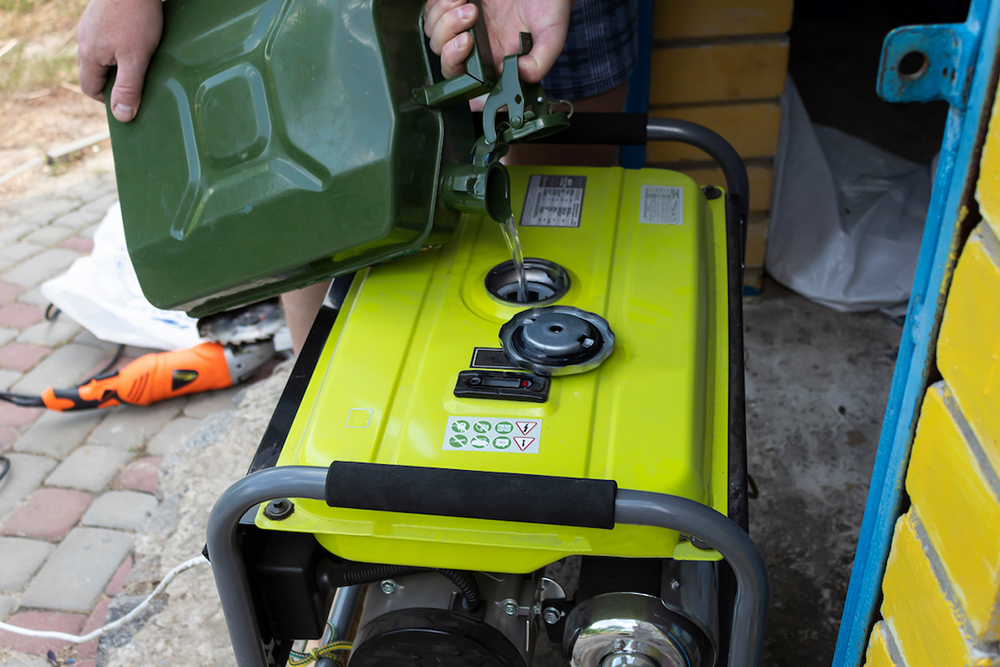
Whole Home Generators vs Portable Generators
While portable generators can be a temporary solution during power outages, whole-home generators offer a range of benefits that make them a more reliable and convenient choice.
Here are some key advantages:
- Automatic Operation: Whole home generators are equipped with an automatic transfer switch. This means they start automatically within seconds of detecting a power outage, ensuring continuous power without any action required from the homeowner. In contrast, portable generators must be manually set up and started each time there’s an outage, which can be inconvenient, especially during inclement weather.
- Greater Power Capacity: Whole home generators are designed to handle the entire electrical load of your house, meaning they can keep your air conditioning, heating, refrigeration, lights, and other critical systems running simultaneously. On the other hand, portable generators typically offer limited power and may only support a few appliances or rooms at a time.
- Safety and Comfort: Since whole-home generators are installed outdoors and directly connected to your home’s electrical system, they eliminate the risk of running extension cords through windows or doors, as is often the case with portable generators. This setup reduces the risk of carbon monoxide poisoning and protects against the elements and vandalism.
- Fuel Efficiency and Supply: Whole home generators are usually connected to your home’s natural gas or propane supply, providing a long-lasting and reliable fuel source. This contrasts with portable generators, which typically run on gasoline and require frequent refueling, especially during extended outages. The convenience of having a continuous fuel supply cannot be overstated, especially during widespread outages when fuel may be scarce.
- Noise Level and Comfort: Whole home generators are designed to operate quietly and can be strategically placed to minimize noise, making them less intrusive than portable generators. This can be a significant advantage, particularly in residential areas where noise can be a concern.
- Durability and Lifespan: Built to withstand harsh weather conditions, whole home generators are durable and designed for long-term use. They offer a reliable solution for power outages, with a lifespan that typically exceeds that of portable generators.
- Property Value: Installing a whole home generator can increase the value of your property, offering an attractive feature to potential buyers, especially in regions prone to power outages. This investment not only provides immediate benefits but can also contribute to the long-term value of your home. (See: Power Up Your Property Value: Whole Home Generators)
- Peace of Mind: Knowing that your home will remain powered and habitable, even during extensive power outages, provides invaluable peace of mind. This is particularly true in Houston, where extreme weather can lead to unpredictable and prolonged blackouts.
Overall, while portable generators can be helpful in certain situations, whole-home generators offer a more robust, convenient, and safe solution for continuous power supply. They are a worthwhile investment for homeowners looking to protect their property and ensure their comfort and safety during power outages.
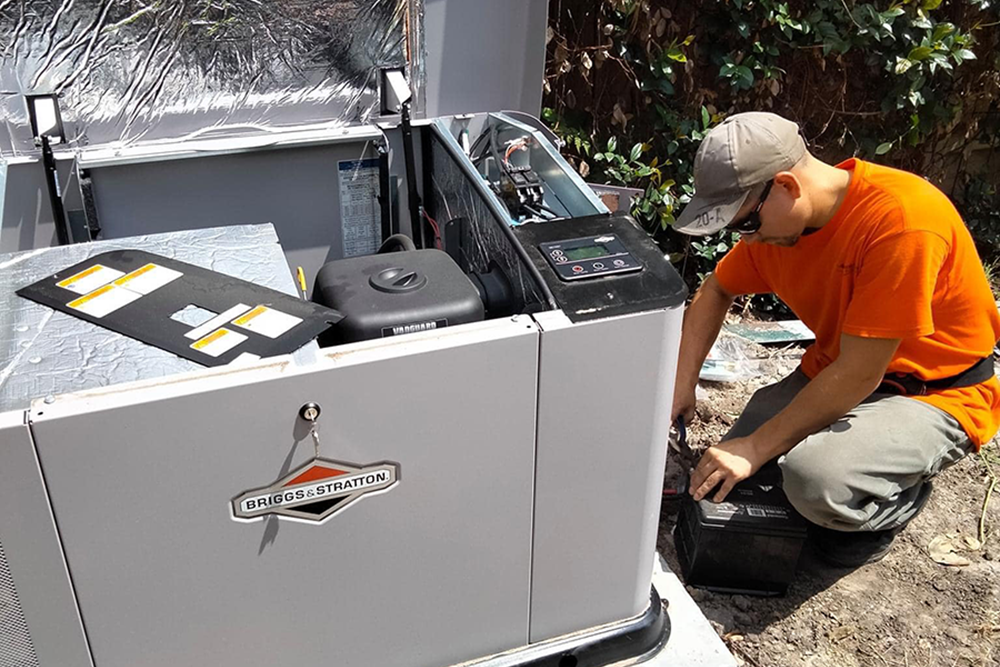
Safety Concerns with Whole Home and Portable Generators
While whole home generators offer many advantages, particularly in convenience and power capacity, it’s important to be aware of and address safety concerns associated with any generator. Here we outline some safety considerations for both whole home and portable generators:
Whole Home Generators:
- Carbon Monoxide (CO) Risk: Even though whole home generators are installed outside, proper placement and installation are crucial to prevent carbon monoxide from entering the home. They should be installed away from windows, doors, and vents to minimize the risk of CO entering the living spaces.
- Proper Installation: Certified professionals should install whole home generators to comply with local building and electrical codes and manufacturer guidelines. Improper installation can lead to electrical hazards, including the risk of fire or electrocution.
- Regular Maintenance: Regular maintenance is necessary to ensure the safe and efficient operation of whole-home generators. This includes checking oil and coolant levels, replacing air and fuel filters, and periodically inspecting the system by a professional.
- Fuel Storage: If your whole home generator uses propane or diesel, proper fuel storage is necessary to prevent leaks and reduce the risk of fire.
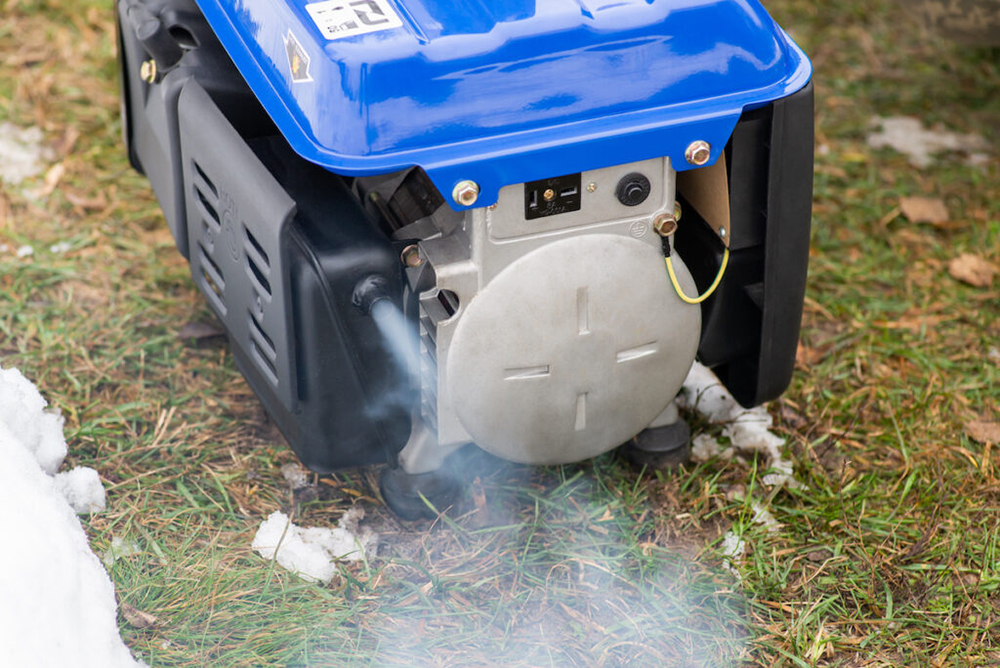
Portable Generators:
- Carbon Monoxide Poisoning: The primary safety concern with portable generators is the risk of carbon monoxide poisoning. They should never be used indoors, in garages, or close to windows, doors, or vents. CO detectors should be installed in the home to alert occupants of dangerous CO levels.
- Electrical Hazards: Connecting a portable generator directly to your home’s electrical system without a transfer switch can lead to backfeeding, posing a severe risk to utility workers and neighbors served by the same utility transformer. Use a transfer switch or connect appliances directly to the generator using appropriate extension cords.
- Fuel Handling: Fuel should be stored in approved containers and filled when the generator is cool to minimize the risk of explosion.
- Weather Protection: Operating a portable generator in wet conditions can lead to electrocution. Keep the generator dry and operate under an open, canopy-like structure if necessary during rain or snow.
- Noise and Exhaust: Portable generators can be noisy and produce exhaust, which can be a nuisance and health hazard. Proper placement and consideration for neighbors are necessary when operating a portable generator.
While both whole-home and portable generators can provide significant benefits during power outages, you must adhere to safety guidelines and best practices to minimize risks. Whole-home generators typically offer a safer, more reliable alternative with proper installation and maintenance, whereas portable generators require careful handling and operation to ensure safety.
Evaluating Your Options
Portable vs. Whole Home Generators
When deciding between portable and whole-home generators, weighing the pros and cons of each type, considering the long-term costs, and understanding their suitability for Houston’s unique climate and weather conditions is essential.
Portable Generators:
Pros:
- Mobility: They can be moved and used in different locations.
- Lower Initial Cost: Generally less expensive to purchase than whole home generators.
- Flexibility: For outdoor activities away from home, such as camping or tailgating.
Cons:
- Limited Power Supply: Can only power a limited number of appliances.
- Manual Operation: Manual setup and operation are required during each use.
- Frequent Refueling: Operates on gasoline, requiring regular refueling during extended use.
Whole Home Generators:
Pros:
- Automatic Operation: Automatically starts and stops during power outages.
- Comprehensive Power Coverage: Capable of powering the entire home.
- Connected to Natural Gas or Propane: Less frequent refueling than gasoline-powered portable generators.
Cons:
- Higher Initial Cost: More expensive upfront installation and purchase costs.
- Permanent Placement: They cannot be moved to different locations once installed.
- Requires Professional Installation: This needs to be installed by a professional, adhering to local codes and regulations.
Cost Analysis Over Time
While portable generators have a lower initial purchase price, their operational costs can be higher due to the need for frequent gasoline purchases, especially during prolonged outages. They also require more maintenance and have a shorter lifespan than whole-home generators.
In contrast, whole home generators have a higher upfront cost, including the unit and installation fees. However, they tend to have lower operational costs, particularly if connected to an existing natural gas line. They also offer a longer lifespan and add value to the property, making them a more cost-effective option in the long run.
Suitability for Houston’s Climate and Weather Patterns
Houston’s climate and weather patterns pose unique challenges, including hurricanes, tropical storms, and severe thunderstorms, which can lead to frequent and sometimes prolonged power outages.
- Portable Generators: While they can be helpful for short-term outages, their limited power capacity and manual operation make them less suitable for the extended outages often caused by Houston’s severe weather. Additionally, their outdoor operation can be challenging during inclement weather.
- Whole Home Generators: They offer a more suitable solution for Houston’s climate, providing uninterrupted power during extended outages caused by severe weather. Their automatic operation and ability to power the entire home make them ideal for maintaining comfort and safety during Houston’s frequent storms.
When evaluating your options, consider the long-term benefits and costs and the specific needs and challenges posed by Houston’s weather. While portable generators may be suitable for temporary or occasional use, whole-home generators offer a more reliable and convenient solution for ensuring uninterrupted power in Houston’s unpredictable climate. (See: Standby Generators: Houston’s Answer to Unpredictable Weather)
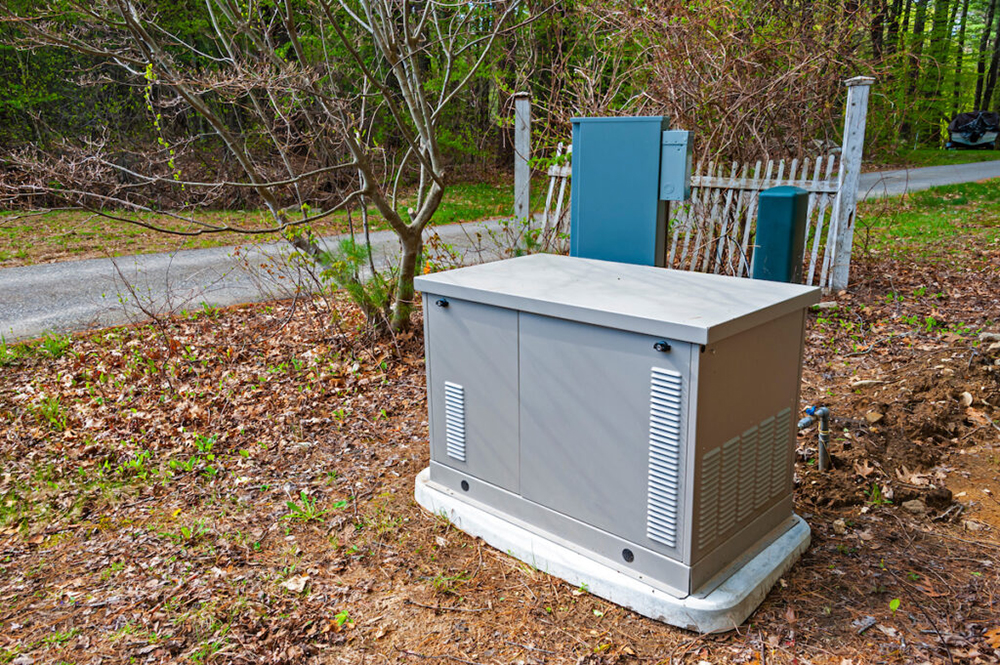
Whole Home Generator Sizing Guide
Selecting the correct size for your whole home generator will ensure it meets your power needs without overspending on unnecessary capacity.
Power Requirements and Sizing
Every home has different power requirements, depending on the number and type of appliances, the size of the property, and the typical power usage. Generator size is measured in kilowatts (kW), which represents the generator’s power output. A higher kW rating means the generator can supply more power to operate more appliances simultaneously.
To determine your power requirements, list all the essential appliances and systems you need to run during an outage (such as refrigerators, HVAC systems, sump pumps, and lights) and calculate their total wattage. Consider both starting wattage (the surge of power needed to start the appliance) and running wattage (the power needed to operate the appliance continuously).
13kw, 18kw, 22kw, and 26kw Generators
- 13kw Generators: Suitable for smaller homes or those with fewer electrical demands. These can typically power basic essentials like lighting, refrigeration, and smaller HVAC systems.
- 18kw Generators: A good choice for medium-sized homes with more appliances or higher energy needs. They can handle several large appliances simultaneously without overloading.
- 22kw Generators: These are ideal for larger homes or those with high power requirements, including central air conditioning and heating systems. This size can comfortably support most of the home’s needs during an outage.
- 26kw Generators: Best for large homes or properties with additional requirements like multiple HVAC systems, large electric water heaters, or extensive outdoor lighting. This is the most robust option for residential use, ensuring that nearly all residential power needs are met.
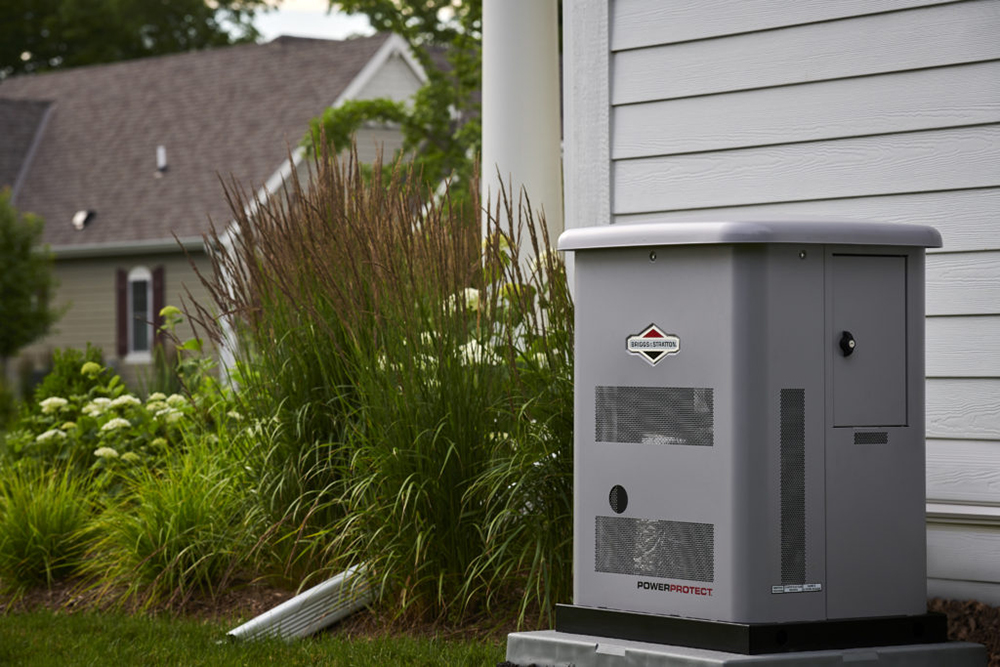
Determining the Right Size for Your Home
- Conduct an Energy Audit: List all critical appliances and systems you need during an outage and calculate their total wattage. Add a margin to account for future additions or miscalculations.
- Consider Your Usage: If you live in an area with frequent power outages, like Houston, you may want a larger generator to ensure comfort during prolonged outages. Conversely, you might opt for a smaller size if outages are rare or short.
- Professional Assessment: Consulting with a professional can provide an accurate assessment of your home’s power needs. They can help you consider factors like peak load, simultaneous appliance use, and the starting requirements of electric motors.
- Future Proofing: Consider potential future needs, such as adding an electric vehicle charger or expanding your home. It might be more cost-effective to choose a slightly larger generator now than to upgrade later.
- Local Regulations and Space: Check local building codes and regulations regarding generator installation. Also, consider the physical space around your home for proper placement and ventilation.
By understanding your home’s energy requirements and considering the specific conditions and needs of your household, you can select the right size whole home generator. This ensures you have a reliable power source that fits your needs without overspending.

Briggs & Stratton Standby Generators
When selecting a whole home generator, choosing a reputable brand that offers reliability, advanced features, and strong warranty protection is crucial. Briggs & Stratton, a well-known name in the generator industry, offers a range of options suitable for homes in Houston.
Here’s what you need to know about Briggs & Stratton generators:
Features:
- Power Management: Many Briggs & Stratton generators come with advanced power management technology, allowing for more efficient distribution of electricity to your home’s appliances, which ensures that even with a lower kW unit, you can power more of your home efficiently.
- Quiet Operation: Designed to minimize noise, these generators are equipped with automotive-grade exhaust systems and sound-dampening technology, making them ideal for residential areas.
- Durability: Built to withstand harsh weather conditions, Briggs & Stratton generators feature rust-resistant, durable enclosures, ensuring long-term reliability and performance.
- User-Friendly Controls: These generators’ intuitive control panels facilitate system status monitoring and maintenance alerts, simplifying operation and troubleshooting.
Warranty Information
Briggs & Stratton is known for the reliability of its generators, which are supported by extensive testing and quality control processes. The brand offers robust warranty packages, typically ranging from 5 to 10 years, covering parts, labor, and travel costs. This comprehensive coverage reflects their confidence in product durability and commitment to customer support.
Briggs & Stratton offers a variety of whole home generators that can meet the diverse needs of Houston homeowners. By evaluating the features, reliability, and warranty options of each model, you can choose a generator that offers the best combination of protection, convenience, and peace of mind for your home.

Protect Your Home With a Standby Whole-Home Generator Solution
Deciding on a whole home generator is an important step towards ensuring continuous power and peace of mind for your household, especially in areas like Houston, known for its unpredictable weather and frequent power outages. As you move closer to making this crucial decision, it’s natural to encounter a range of questions and considerations.
Common Concerns
When investing in a whole-home generator, homeowners often have several questions and concerns. These can range from understanding the financial investment to evaluating the practical implications for their specific living situation. It’s important to address these concerns thoroughly to make an educated and confident decision that aligns with your needs and values. By exploring common questions and providing clear, informative answers, we aim to ease the decision-making process and help you move forward with confidence.
Here are some key concerns and important information regarding maintenance and long-term service:
- Initial Cost and Installation: One of the primary concerns is the upfront cost, including the purchase price and installation fees. It’s important to view this as an investment in your home’s safety and comfort. Financing options may be available to help manage this initial expense.
- Operating Costs: Understand the ongoing costs associated with operating the generator, such as fuel consumption rates and utility expenses. Costs will vary depending on the fuel type (natural gas, propane, diesel), so it’s important to choose the most cost-effective and accessible fuel source for your area.
- Noise Levels: Homeowners are often concerned about the noise a generator might produce. Modern whole-home generators are designed to operate quietly, but the noise level can vary between models. Consider the generator’s placement and any local noise regulations.
- Size and Placement: Determining the right size generator and finding a suitable location for installation can be challenging. Local zoning laws, space constraints, and aesthetic considerations should all be taken into account.
- Maintenance and Long-term Service:
- Regular Maintenance: Like any major appliance, whole home generators require regular maintenance to ensure they operate efficiently and safely. This includes checking oil levels, replacing filters, and scheduling professional inspections.
- Service Agreements: Many manufacturers and dealers offer service agreements or maintenance plans. These can provide peace of mind and help avoid unexpected repair costs. Understand what’s covered under your warranty and what additional services might be beneficial.
- Professional Support: Establish a relationship with a trusted professional who can perform routine maintenance and address any issues that arise. Knowing who to call for service or emergencies can alleviate concerns about the generator’s long-term performance.
- Durability and Lifespan: Inquire about the generator’s expected lifespan and what you can do to maximize its service life. When properly maintained, quality generators can provide reliable service for many years.
- Environmental Impact: Some homeowners are concerned about the environmental impact of running a generator. Look for models that meet emissions standards and consider the environmental benefits of maintaining power during emergencies, such as preventing food waste and avoiding water damage from sump pump failures.
By thoroughly researching and addressing these common concerns, you can confidently approach the purchase of a whole home generator, knowing that you’re prepared for the responsibilities and benefits of securing a reliable power source for your home.
Customer Experiences with Briggs & Stratton Generators
Many homeowners have shared positive experiences with Briggs & Stratton generators, highlighting the brand’s reliability, efficiency, and user-friendly features. These insights provide valuable perspectives for anyone considering a whole home generator.
One standout feature resonates with many is the seamless transition from utility power to generator power, a crucial factor for continuous comfort, especially in areas prone to frequent outages. Users have praised the quick switching capabilities of Briggs & Stratton generators, ensuring that life goes on as usual, even during extended blackouts.
The power capacity of these generators, particularly models like the 26kW, receives high marks for handling significant household demands. Homeowners have noted the ability of these units to power everything in their homes, from dual air-conditioning systems and multiple electric ovens to pool motors, without missing a beat. This robust performance underlines the generators’ suitability for large homes or properties with high power needs.
Maintenance ease and reliability are also common themes among users. The generators are lauded for their low maintenance requirements compared to competitors, with a strong supply chain for parts ensuring long-term support and service. Additionally, the warranties provided by Briggs & Stratton stand out in the market, offering homeowners peace of mind through extensive coverage.
The physical design and appearance of the generators are also noted advantages. Despite their powerful output, some models are described as compact and sleek, blending well with home exteriors without taking up excessive space. The quiet operation of these units is particularly appreciated, reducing noise pollution and allowing for a more peaceful environment, even when the generator is in use.
Overall, the positive feedback from users underscores the value of investing in a Briggs & Stratton generator for reliable, efficient, and unobtrusive home power solutions. The brand’s commitment to quality and customer satisfaction shines through in these experiences, making it a preferred choice for those looking to enhance their home’s energy security.
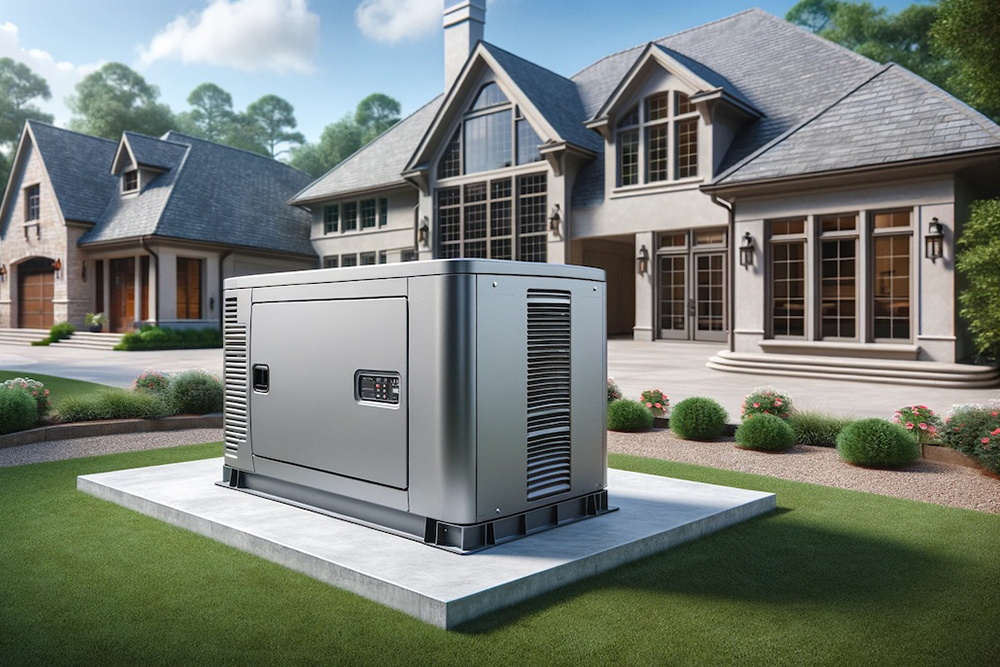
Get Protected
Are you ready to secure uninterrupted power for your Houston home with a reliable whole-home generator? Don’t let power outages disrupt your life any longer. Take the first step towards enhanced comfort, safety, and peace of mind.
Contact Brotherlylove Electric, your trusted Houston electrical contractor, and explore our range of whole-home generator solutions tailored to your needs. Whether you’re interested in learning more about the benefits, need guidance on selecting the right size, or want to discuss installation options, we’re here to help.
- Fill Out The Form Below: Provide us with some basic information about your needs, and one of our expert team members will reach out to you with personalized advice and solutions.
- Call for a Personalized Consultation: Would you prefer to speak directly with an expert? Give us a call at (346) 777-3370, and we’ll provide you with a personalized consultation. We’ll answer all your questions, help you assess your home’s power needs, and guide you through the process of selecting and installing the perfect whole-home generator for your residence.
Don’t wait for the next power outage to leave you in the dark. Contact Brotherlylove Electric today and take a proactive step towards a safer, more comfortable home with a dependable whole-home generator.

